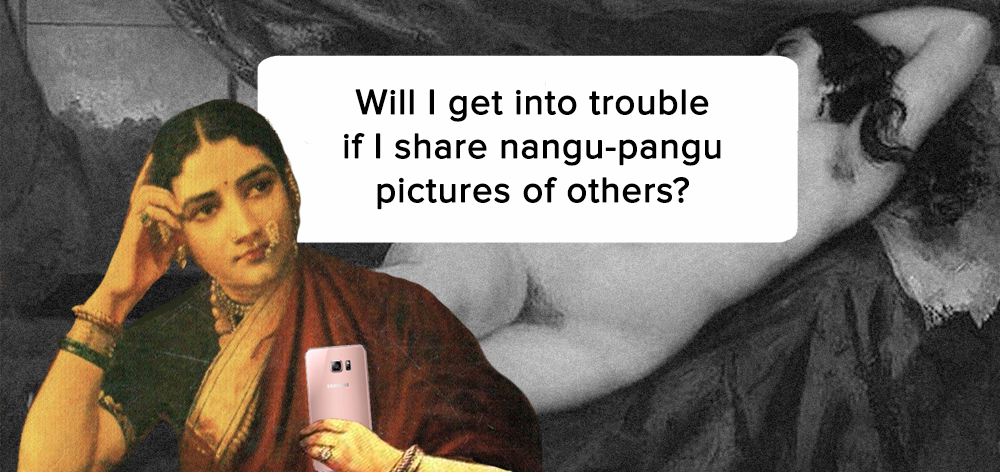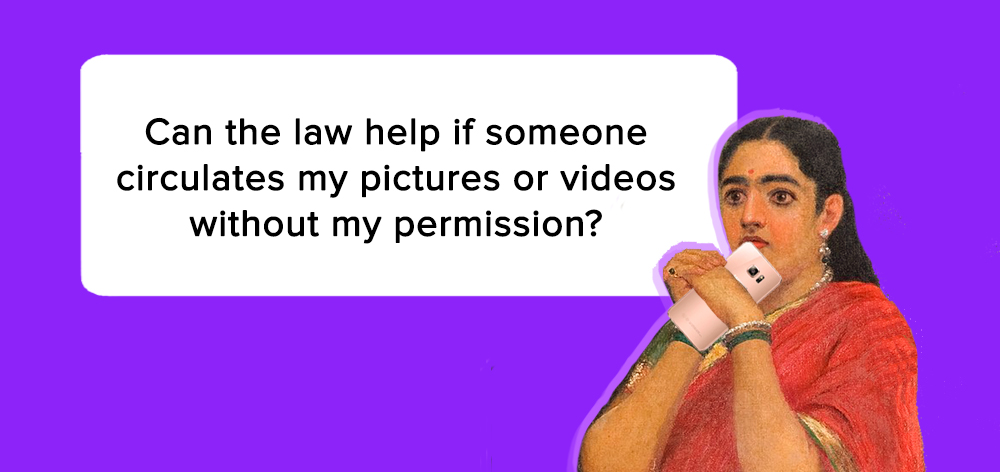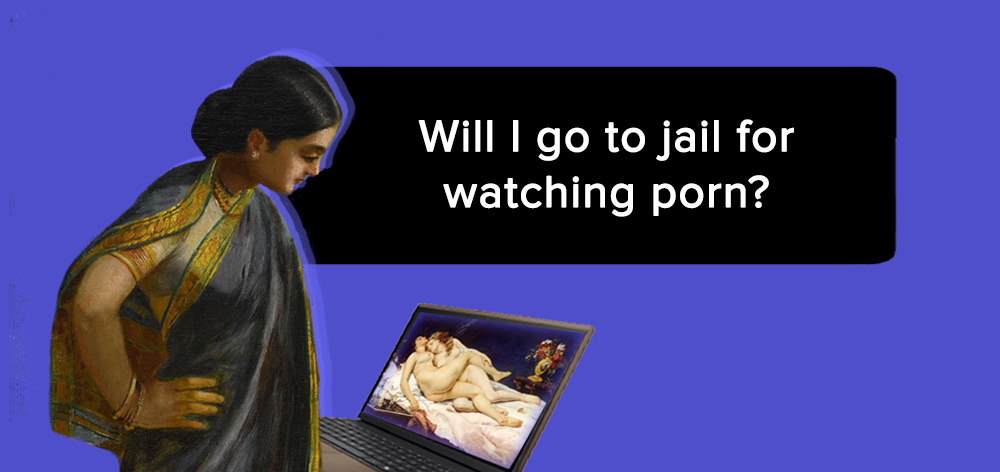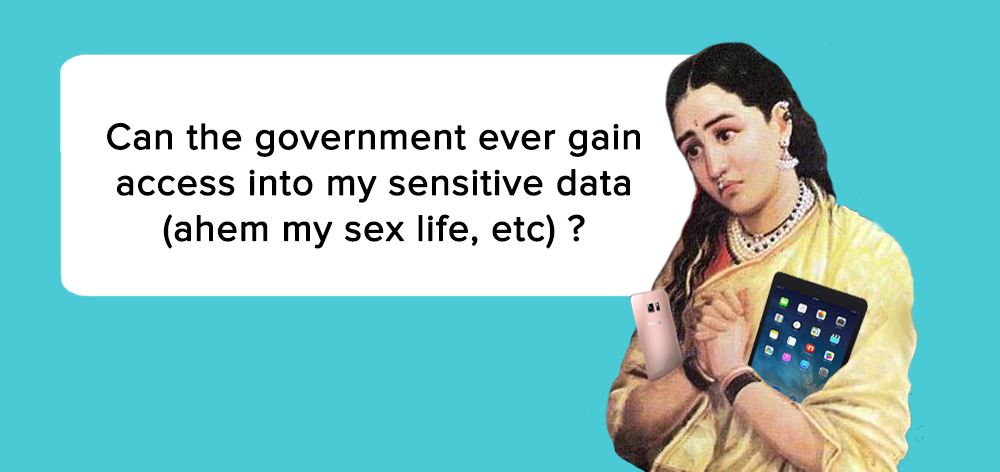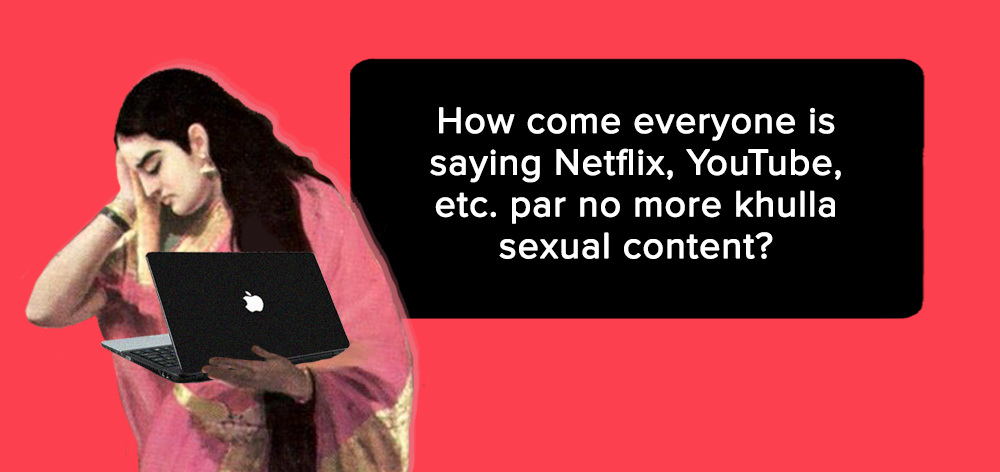Long gone are the days when the internet implied a parallel and free world that afforded- dedicated corners for dial-up connections, quick, condensed information, easy anonymity and the wildly exciting connections that ensued- especially when it came to forming cyber intimacies. Aaj ka digital daur takes after the governance models of the country that you are using the internet in. And when it comes to sexual expression, the laws and rights governing the digital space say a lot about the nature of its democracy. Do you wonder how your freedom and desire to navigate the digital duniya might be coming under the law’s purview? What are some rights and laws that may impact your cyber activities? Here’s a quick brush with the laws concerned with sexual explorations in cyberspace:
According to Section 67 of the Information Technology Act, publishing “obscene” information in electronic form, or images containing sexual acts, is a crime in India. It brings under the scanner even materials made with one’s consent. So a sexy selfie or a video sent with consent could be a crime too! But what is obscene? As filmmaker and activist Bishakha Datta points out in this video, looking at sexual content as ‘obscene’, instead of evaluating it based on whether or not it was consensually made, restricts people. It does not protect them. This idea of ‘obscenity’ ends up taking away people’s agency, more commonly so with women or queer people. How so? The very words of the law implicates the individual whose images are in circulation, in the crime, by terming them obscene or ashleel. The victims then automatically seem to harm "public morality", a concept that acts as a form of censorship for anything to do with sex, making them offenders in the eyes of society. Therefore, the law fails to acknowledge that harm was done to an individual and ulta might even harm that person further simply for being associated with ‘obscene’ content.
Yes. Section 66E in the IT Act punishes violation of privacy and recognizes consent. It states that transmission of pictures of private parts, without the owner’s consent is a punishable offence. So, you can seek help if your pictures are shared or transmitted without your consent. But a study found that most cases of non-consensual image circulation since 2009 were booked under the obscenity laws (section 292 of the IPC, and Section 67 as above) as opposed to the non-consensual privacy violation law, and the that, as we discussed above can be counter-productive to the person harmed
There are no laws in India against watching pornography in private. But in 2015, the government blocked over 800 porn and file-sharing websites, and has made renewed efforts to block porn sites in 2018 and 2019. Perhaps, here too, the lens of consent would protect any forcible making or viewing of porn while leaving private morality alone. By taking into consideration an individual’s own agency and right to information that is sought consensually, the law can address crimes while avoiding public censorship based on restrictive notions of morality. While watching porn in private is legal in India, making porn is not. However, if you make porn at home, for your private consumption, without publishing or sharing, it’s legal if: - You star in your own porn (for an audience that consists of only you). - You capture yourself with someone else with their consent (for an audience of only the people starring in it), and with no intention of transmitting the recording. Making someone watch porn without their consent, either intentionally or unwittingly, is also a punishable offense. If you publish it or share on any public media, even with consent, it is illegal according to the laws that deal with obscenity.
Waise toh The Personal Data Protection Bill 2019 (PDP Bill, 2019) mandates ‘explicit’ consent of the individual who owns the ‘sensitive personal information’, but when it comes to ‘necessity’ of the state, it dilutes the importance of consent. Matlab? Section 35 of the proposed bill gives all government agencies unrestrained access to the personal data of citizens, as and when it is seen to relate to state security or ‘friendly’ foreign relations. It lets the State breach privacy without stating purpose. Yaniki personal information available on devices may be misused-- as seen in a recent case when snooping against activists, lawyers, and journalists was reported by Whatsapp.
Before Nov 9, 2020, online or digital content in the OTT space didn’t have any regulation except for the legal framework of the IT act. But now, the digital media space has been brought under the purview of the Ministry of Information and Broadcasting. The censorial history between sexual content on film, TV or Radio, and the laws governing them, make it easy to put two and two together with digital content in the OTT spaces as well.


